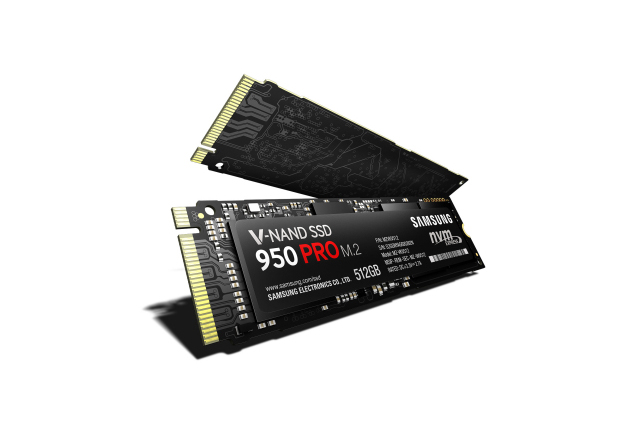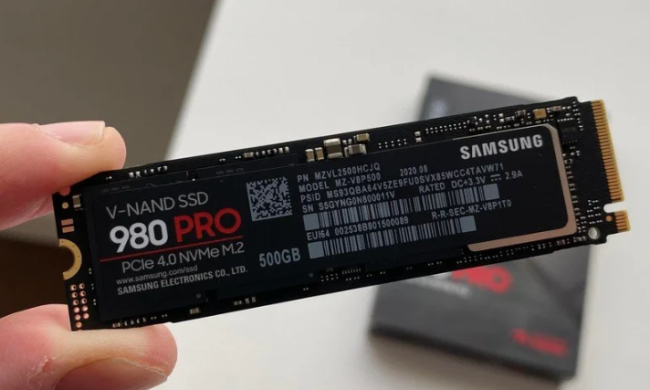
According to the manufacturer, what all those letters and numbers mean for end users is increased performance and reduced power consumption, which should make this an attractive choice for everyone, whether they’re home or enterprise users. However, something tells us this has a slightly more hardcore audience in mind, as the black PCB and red highlighted sticker definitely seem designed to tempt enthusiasts.
Samsung is confident that this new 950 Pro will offer real, tangible improvements over its previous SATA solid state drives, especially when it comes to random access performance, which is arguably more important than the eye catching sequential read/write numbers. That’s not to say sequential speeds aren’t impressive though, with Samsung quoting the larger of its two drives as operating at 2,500 MBps and 1,500 MBps for read/write respectively.
Although we’ll need to wait for reviews of this hardware to really gauge its speed, we’re told by Samsung that it could equate to as much as four times faster operation in applications with a high volume of inputs and outputs, compared to traditional SATA SSDs.
Available storage capacities are limited to just 256GB and 512GB, unlike some of the more sizeable and varied SSDs available with more traditional SATA interfaces. However IOPS are up, with random read registering up to 300,000 per second, while random write is limited to 110,000.
As we’ve seen from some of the tests conducted by various sites earlier this year, SSDs can last longer than many give them credit for. With that in mind, Samsung has rated this one as being able to handle up to 200 terabytes of written data for the smaller version, and 400 for the 512GB one –or up to five years, whichever is first.
Prices start at $200 for the 256GB version and $350 for the 512GB.


